For ENGL 799, Winter 2019: Critical Media Infrastructures, students submitted mini projects composed of several parts: they selected old pieces of media or technology that are no longer in use, created miniature Bitsy games that highlight aspects of the selected device’s infrastructural histories, subjects, or contexts.
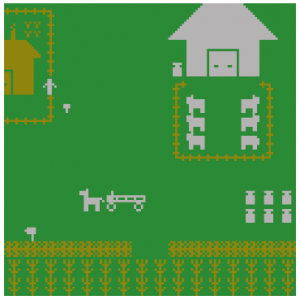
“Farming Evolved” is an exploration of how the dairy farm landscape has changed in the past century with changes in technology. From the traditional milk can to the robotic milkers, discover how work demands on the farm have changed by exploring three different dairy farm layouts.
AC Atienza, Directional Input Museum
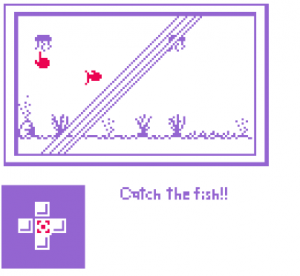
Many people assume that new tech is strictly better than old tech, but is this always the case? The first game is a test of two ways of inputting directions, while the second is an exploratory museum. These games celebrate the different ways we’ve historically selected directions in videogames, and asks what kind of economy, social system, user demographic, etc may encourage the revival of tech we thought were “old”. Could your next project benefit from re-adopting one of these systems?
Play part two here.
Emily Acton, Pokemon Junk Drawer
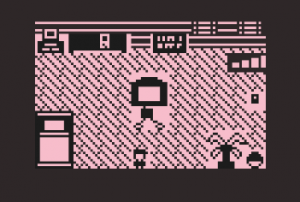
Pokémon Junk Drawer explores the problems of planned obsolescence in videogame hardware. Drawing from the central “catch ’em all” ethos of the iconic Pokémon Red, players embark on a quest to repair the protagonist’s old gaming console, collecting electronic “junk” along the way. “Pokémon Junk Drawer” seeks to ask: how long can the owner of a videogame enjoy their property before it dies? And, once it breaks, how far will the player have to go to sustain their former experience?
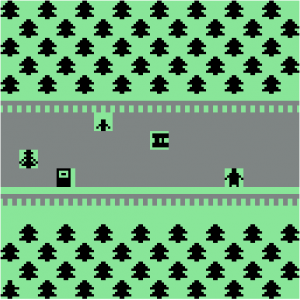
No Print Media! interrogates the transition from print to digital forms and the invisibility of digital forms’ underlying infrastructure. While digital forms avoid the deforestation and oil consumption in the production of print media, they are not devoid of environmental implications. No Print Media! draws the player’s attention to these implications, not to make a statement about whether print or digital forms are preferable, but rather to raise consumer awareness of the underlying processes behind these digital forms.
Brian Freiter, Museum of Typewriter History
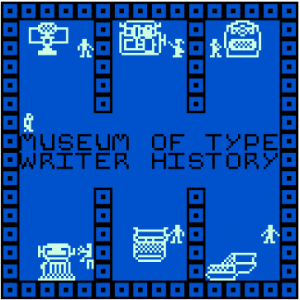
Learn about technologies that culminate in the form of the modern keyboard. See what worked and what did not.
